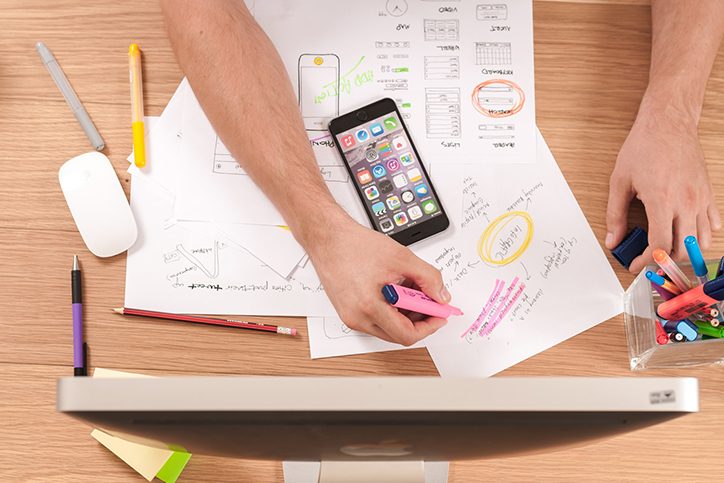Is this the year you finally decide to go for that promotion?
Maybe it is time to change companies or even careers.
More often than not, these days, there is an interview presentation as part of the process.
How prepared do you feel for the presentation?
Do you actually prepare for it? Or will there be a presentation that you will need to prepare and deliver under pressure as part of an exercise?
While a job interview presentation might only be to two or three people, preparing for it requires just as much time as any other presentation. And even if it’s a presentation, under pressure, as part of an Assessment Centre, there are a few tactics you can employ to help you secure that new job.
Know Your Audience
We mentioned it earlier, but this is an important consideration. Find out who you are presenting to and how best to pitch your presentation.
Suppose you are presenting to managers in your technical area of expertise. In that case, you can afford to include some technical detail that will be well received understood and will support your job prospects.
If you are presenting to an organisation with a flat management structure and you find yourself in front of the CEO and perhaps your potential Manager, then delving into the detail of your specialism might not be welcomed.
Getting to know your audience, either through your recruiter or an HR contact you have had, can also help inform things like a handshake or fist pump when you enter the room. This might seem small, but it can knock your confidence if you get this wrong.

Preparation
Your preparation for a job interview presentation is critical. You will almost certainly have time to prepare, and it will, of course, be relevant to the position you are applying for, so you should have a reasonable level of background knowledge.
Firstly, make sure you ask about the room or situation you will be presenting in.
- What type of computer or laptop will be expected to use?
- Are you expected to bring your laptop?
- Will there be an expectation you should stand, or will they be comfortable with you sitting?
- How many people are you presenting to?
- What is the time limit?
- How far in advice do you need to submit your presentation?
- Is there a system that is not compatible, i.e. you can’t use Canva or Prezi?
- Will they have audio if you use film clips?
There is a range of questions you should cover, so there are as few surprises as possible on the day. You will feel under enough pressure without the added surprise of an incompatible laptop or timelimit you weren’t expecting.
When drafting your presentation, try not to leave it to the last minute. We all perform better when we have a clear head and the energy from a good nights sleep. So if you are up until midnight drafting a presentation that you need to deliver at 9 am, your mind and body won’t be in the best condition. Add the build-up of adrenaline into the mix, and you are not giving yourself the best opportunity.
In the lead-up to the interview, try to make sure you are simply working on perfecting your dialogue a couple of nights before your interview. Depending on the length, it might not be possible to memorise it all, but you need to become very familiar with it.
The best option for remembering the presentation is to have prompt cards rather than a fully written speech. It is unlikely you will be presenting for a considerable length of time, and in an interview, it will benefit you to take a more conversational style to show you know the topic.
Practice with these cards, don’t just turn up on the day and try to work out your rhythm. They should be used in any dress rehearsal you do.
Don’t write your full speech on the prompt cards; use this guide to add the right information to keep you on track but not have to look down and read it every few seconds.
Interview Presentation
When preparing your interview presentation slides, stick with the concept that less is more. Don’t fill your slides with vast amounts of information; your audience will almost certainly know the topic, and they want to hear your take on the subject.
A slide deck full of information that you then recite to the interviewers is a sure-fire way of showing you have not prepared. Remember your slides are there to reinforce your message, not to be the message.
Avoid, where possible, the use of advanced media in your presentation. It adds a level of complexity that doesn’t add enough value to make it worthwhile. You might have a technical job interview that involves presenting certain types of media. However, if there is a choice, in general, avoid using film or other media that require a link to the internet.

Managing Your Adrenaline
The last thing to consider is how to manage your performance throughout the process. Your heart rate will increase, and the adrenaline will be coursing through your body. There is the added pressure of a job at the end of this presentation, so the stakes are high.
Controlling your heart rate is crucial. One of the tactics I teach in my programme is silence. When you first try this, it will almost certainly heighten your anxiety, but it will become a helpful tool as you practice.
When preparing, work on pauses at convenient times throughout your presentation. When you want to emphasise a point, leave a couple of seconds of silence at the end of the sentence, so your audience has time to take on board what you have just said. This is what I call a Did-You-Get-That-Pause.
In the first instance, this will seem like minutes, but it is generally a very short space of time. It helps you focus on what is next and regulate the pace of your delivery. The faster you speak, the more chance of mistakes creeping in and you losing focus, where panic sets in.
Interview Presentation Preparation
So the secret to preparing well for your next job interview is in the preparation, the visual aids you use, understanding your audience and managing your adrenaline.
There is a lot to consider, but if you would like more information on how you can take charge of your next interview then get in touch about our new Online programme, the Agile Speaker.
If you’d like to find out more, please get in touch by completing the form below or give us a call.
